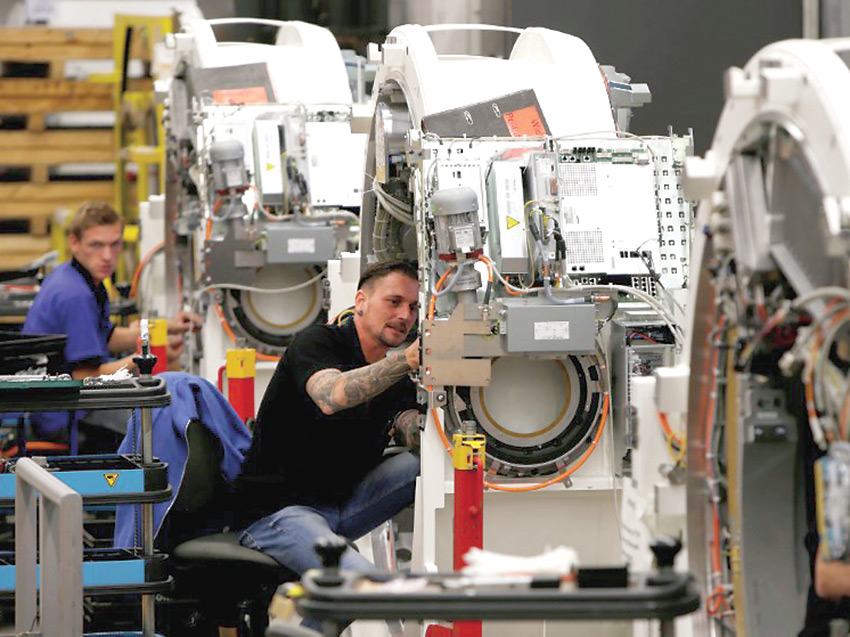

By Michael Nienaber — A “golden decade” of growth and prosperity in Germany risks fading if the government fails to heed calls to increase investment and pursue structural reforms that lay the foundations for a new phase of economic expansion. Europe’s economic powerhouse grew at the fastest rate in half a decade last year, but it is unlikely to top this performance in 2017 and beyond. A consumption-led upswing looks to have reached its peak as a slowdown in wage growth and a pick-up in inflation gradually weakens consumers’ spending power.
Meanwhile exports could also weaken given political uncertainties such as Brexit and a possible protectionist US trade policy under Donald Trump.
Germany’s economy grew by 1.9 per cent in 2016 driven by soaring private consumption, increased state spending on refugees and higher construction investment, data showed on Thursday.
But analysts expect economic growth to slow to 1.4 per cent in 2017 and 1.5 per cent in 2018, with inflation predicted to bounce back to 1.6 per cent this year.
“German private and public consumption will rise less dynamically in 2017,” Ifo economist Timo Wollmershaeuser said, pointing to the higher oil price and a reduced number of refugee arrivals.
Meanwhile, real wages for workers with collective agreements rose less sharply in 2016 than in the previous two years, a study showed last week.
ING’s Carsten Brzeski said that German real wages would not continue to rise and interest rates would not be cut further.
“The simple lack of additional stimulus means that growth should slow down. Not only in 2017 but also in the year beyond,” Brzeski said, adding that household and state spending would continue to drive growth — only at a somewhat slower pace.
END OF AN ERA: Germany has enjoyed an economic super-cycle, kicked-off by the economic reforms from Chancellor Angela Merkel’s predecessor Gerhard Schroeder and prolonged by the European Central Bank’s ultra-loose monetary policy, a weak euro and lower oil prices.
Under Schroeder, Germany cut income tax, reduced non-wage labour costs such as healthcare contributions and made it easier for firms to hire and fire workers.
However economists and senior German officials say a new wave of changes are needed: to improve the country’s infrastructure, underpin the pension system for an ageing population and meet the challenges of digitalisation.
They say the government should increase female participation in the labour market by getting rid of tax incentives for parents staying at home, introduce part-time work schemes, and provide better child care.
Other demands include strengthening English language skills for children and investing in high-speed Internet and digital infrastructure that put Germany on par with world leaders.
If the government fails to pursue such reforms, business leaders say the “golden era” of growth and prosperity risks fading.
While the government has increased investment more than the euro zone average in recent years due to healthy tax revenues and record-low borrowing costs, the private sector is holding back amid rising political uncertainty.
“What the upswing is missing is a contribution from industry,” Ifo’s Wollmershaeuser said, adding that companies were not investing enough in equipment and machinery. “There is no impulse from abroad that could turn this upswing into a boom,” he added.
BDI President Dieter Kempf said this week that future growth was anything but self-evident, given the political challenges threatening Germany.
German business leaders are worried that the economy could face headwinds from a protectionist US trade policy under new president Trump and excessive state interference in China. — Reuters
Oman Observer is now on the WhatsApp channel. Click here



